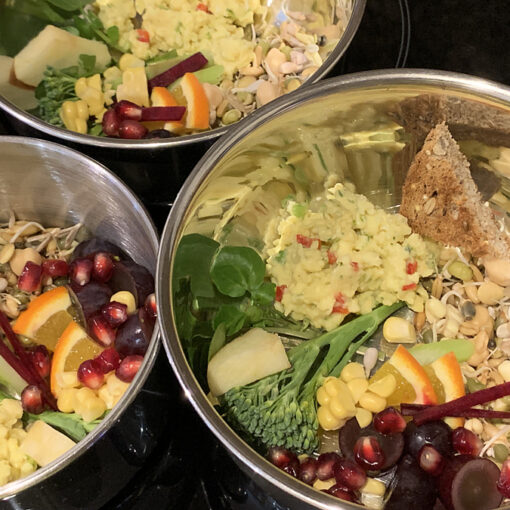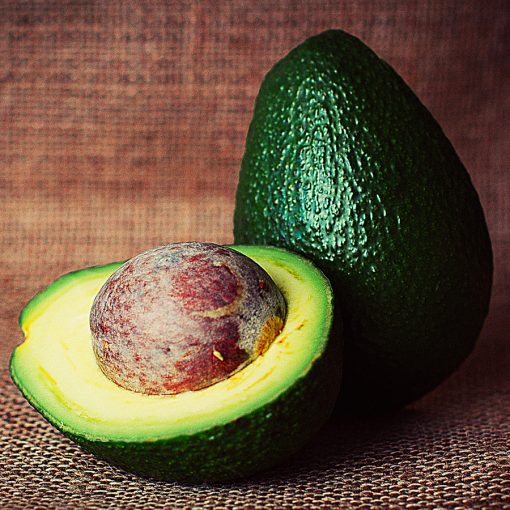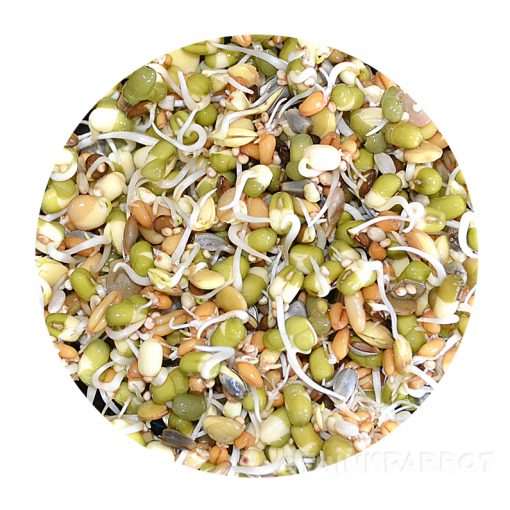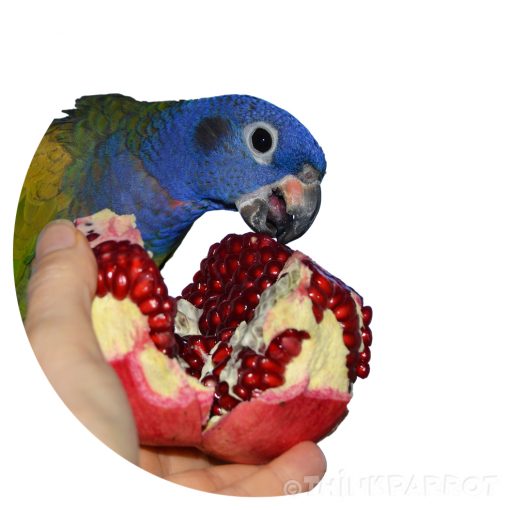(Updated October 2023)
The literal meaning of arthritis is “joint inflammation” and is a general term for many conditions that result in pain, stiffness and swelling of the joints.
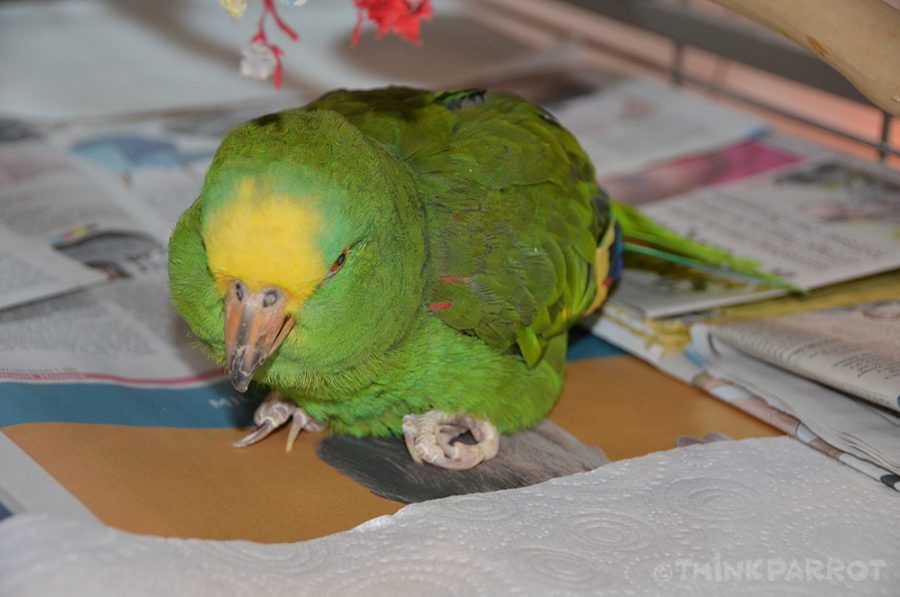
Osteoarthritis is the progressive degeneration of the joint tissues. This is often the arthritis seen in older parrots. Rheumatoid arthritis differs in that it is an auto-immune disorder and can affect much younger individuals.
Repetitive strain caused by using the same groups of muscles and joints, can over time cause joint damage and arthritis. Repetitive strain can occur from perching on the same diameter dowel perches, or if the parrot is overweight, or has a leg/foot injury that causes the bird to constantly bear its full weight on one leg. Excessively long nails can also result in joint stress by restricting normal movement. In some cases, arthritis can be caused by infection to the joint caused by injury or even surgery. Poor diet, depleted in vital nutrients may have a part to play.
Exercise
Exercise is important to prevent arthritis and also for the already arthritic parrot. Natural perches of varying diameters and textures, depending on the extent of the disability, will exercise the feet and get the bird to use different groups of muscles to perch. Moving the perches closer together, but far enough apart so that the bird has to stretch between them may help the parrot get around the cage more easily but still provide some exercise. Again, depending on the disability, platforms and ramps can be a useful addition.
A larger cage will provide more exercise which is important not only for mobility but for mental health. To get the bird to move, place the food and water bowls at opposite ends of the cage. The addition of small play areas and toys inside the cage will also help keep the parrot active. Padding the cage bottom with towels or upholstery foam or even raising the cage bottom will cushion falls. Raising the cage bottom for a large bird cage is easy to do as described in this post: Modifying a Cage For a Disabled Parrot
Heat
Keep the parrot warm and out of drafts. Flat heat panels made especially for parrots are available, as are infra red light bulbs. Make sure the bird can move away from the heat source and that there are no wires within chewing distance.
Sunlight/UV light
Sunlight is incredibly important for well-being. It helps the body synthesise Vit D which is needed for the absorption of calcium. Vit D is said to be often deficient in those with arthritis. Dietary sources of Vit D are eggs and oily fish. Failing access to natural sunlight an avian UV sunlamp would be beneficial. Make sure the parrot can move away from the UV light and always provide some shade from natural sunlight.
Nutraceuticals
Glucosamine Sulphate (Sulfate) may help with inflammation and pain – study results are mixed. Many Glucosamine supplements can contain as much as 30% sodium – not ideal for parrots. Look out for salt/sodium free Glucosamine Sulphate (Sulfate). Tablets can be crushed and sprinkled on food. Capsules can be opened and sprinkled on food. However, Scottsdale Veterinary Clinic (scottsdaleveterinaryclinic.com) recommends oral liquid glucosamine for humans, the dose for parrots being 3.5mg per 100gm body weight.
Chondroitin can also be helpful for many individuals. It is said to reduce pain. It may prevent the breakdown of joint cartilage and even “stimulate its repair mechanisms,” plus it provides cartilage elasticity by helping it retain water (https://versusarthritis.org/). Look out for oral liquid Glucosamine that also contains Chondroitin and MSM. Senior Nutriberries contain Glucosamine and Chondroitin as well as other helpful foods.
High quality MSM supplement, a sulphur compound, can help reduce inflammation and aid tissue/joint repair. A tiny pinch or a few grains sprinkled over food.
Turmeric contains curcumin which has anti-inflammatory and pain-relieving qualities. Studies show it works as well as anti-inflammatory drugs but without the side effects. It is recommended for both osteoarthritis and rheumatoid arthritis. Fresh turmeric should be cooked otherwise use dried. Eating it along with flax oil and black pepper help with the absorption of the curcumin. According to Dr Stephanie Lamb, DVM, DIPL ABVP (Avian Practice), small amounts of turmeric can be helpful but be careful of feeding too much. She advises not to feed every day as it can result in elevated liver enzymes.
Curcumin, the most important curcuminoid in turmeric is not well absorbed by the body. Theracurmin, however, is a highly absorptive formulation of curcumin. This is available in capsule form. I use the one by Natural Factors – not the double strength as it is too strong. I empty the capsules into a dedicated salt shaker and sprinkle a tiny bit into Chico’s dab of yogurt on his breakfast (see pic below). Again, like turmeric too much can result in elevated liver enzymes so don’t feed every day.
Omega-3 Essential Fatty Acids (EFA) help reduce inflammation. Omega-3 is found in flaxseed, flaxseed oil, chia seeds, walnuts and cod liver oil. Hemp seed and Brussels sprouts also contain useful amounts of Omega-3. Dr Stephanie Lamb, DVM, DIPL ABVP (Avian Practice) will start a bird on Omega-3 Essential Fatty Acids alongside NSAIDs (non-steroidal anti-inflammatory drugs). The NSAIDs start to work immediately whilst the Omega-3 takes time to build up in the blood. However, the Omega-3 will be effective long term allowing the bird to continue with them whilst maybe later coming off the NSAIDs. Scottsdale Veterinary Clinic (scottsdaleveterinaryclinic.com) recommends fish oil which they say seem more effective than the seed oils. Leslie Moran (https://www.bestbirdfoodever.com/) suggests Equazen Baby (Naturally sourced Omega-3 with Omega-6) – this contains fish oil. It comes in capsules which can be pricked with a needle and a drop squeezed out onto your parrot’s food.
Anti-inflammatory foods
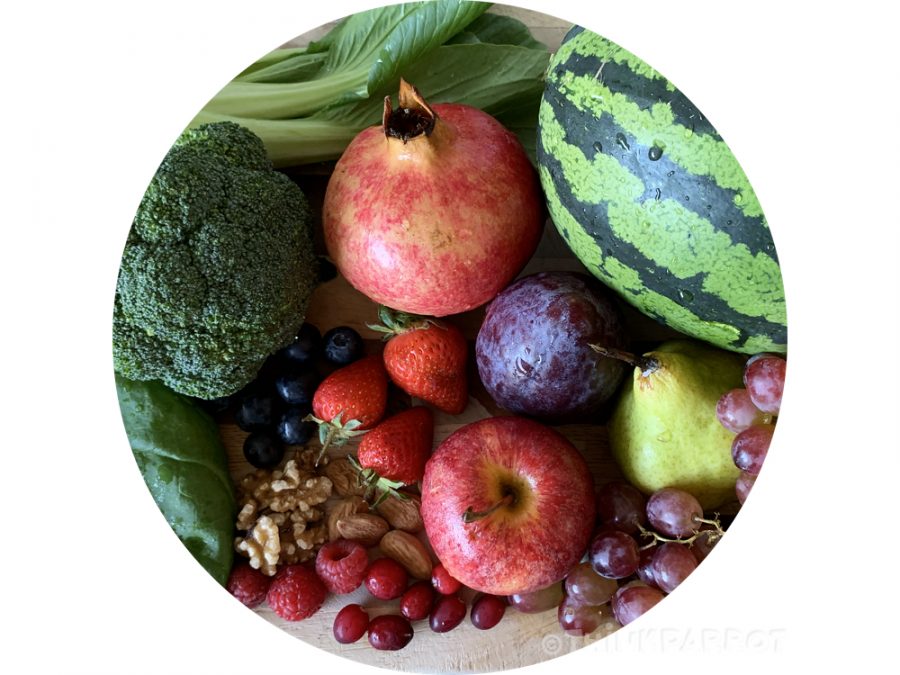
A diet rich in antioxidants helps to reduce inflammation and pain. Found in fresh fruit and vegetables, generally the more colourful, the more antioxidants they contain. Blueberries, raspberries and strawberries contain particularly high amounts.
Bioflavonoids, especially quercetin, have antioxidant and anti-inflammatory properties. Highest quantities are found in foods with a dark red or blue hue including cranberries, black plums, blueberries, black currants, beetroot, cherries, apples and red grapes (include seeds since they are rich in oligomeric proanthocyanidin (OPC) which may help reduce swelling and improve blood flow). Other good sources are broccoli and kale.
Calcium is integral to bone health, but it needs to be combined with magnesium for optimum uptake. Tree nuts (almonds contain the highest levels of calcium – parrots often like almond butter too), seeds (poppy, sesame, celery, chia seeds) and leafy greens (kale, spinach, collard greens, turnip greens and mustard greens) are good sources of both.
Boron, a mineral, is helpful for arthritic conditions, is found in most vegetables including kale, spinach, broccoli, carrots and beans. It is also found in red apples, pears, oranges*, red grapes, bananas, chick peas (garbanzo beans), almonds, walnuts, honey and raisins.
Ginger, a powerful antioxidant, has anti-inflammatory and pain inhibiting properties.
Cayenne pepper and chilies are natural painkillers, but they are of the nightshade family (see below for more info).
Pineapple contains bromelain which reduces inflammation. It must be fresh as freezing or canning destroys the enzymes.
Cherries known for their relief for gout are also said to be helpful for arthritis. Choose organic as they are one of the worst offenders for pesticides. Pure, organic tart cherry juice is available in health shops.
Pomegranate seems to be a super food high in antioxidants and anti-inflammatory compounds. It is said to help all sorts of conditions such as cancer, heart disease, arthritis and even dementia.
Watermelon and strawberries are good for acute inflammation/arthritic flare ups.
Celery and celery seed are one of the highest sources of natural COX-2 inhibitors which are pain relievers. They are also powerful anti-inflammatories and can reduce uric acid levels so help with gout. (Ref: The Green Pharmacy Guide to Healing Foods by James A. Duke.) Be sure to slice celery crossways so there are no long strings that can get caught up in the crop.
Oregano, the herb, has many painkilling and anti-inflammatory properties.
Virgin coconut oil, used internally and externally, is said to be anti-inflammatory and pain relieving.
Organic apple cider vinegar with the mother is rich in minerals and, according to Margaret Hills, helps dissolve deposits laid in arthritic joints. Start off with just half a teaspoon in 200ml of water daily (this amount is hardly noticeable in taste). Make sure the parrot is drinking water (more important than ingesting the cider vinegar) – provide a second source of plain water if necessary. A few drops of cider vinegar can always be added to an evening cooked meal instead if that is more palatable.
Noni juice has been used for more than 2000 years for arthritis pain and other conditions.
Taming the Flame Tea by Biodiversity Bird Blends has had good feedback on its anti-inflammatory properties with regard to avian arthritis.
Green tea contains anti-inflammatory properties. Try caffeine free green tea.
Arnica Montana is a herb that has been used for centuries to help with pain and inflammation. It can be taken as a homeopathic remedy. Look for lactose free homeopathic remedies as parrots cannot digest lactose.
CBD oil may help with the pain according to Dr Todd Driggers DVM. Dr Stephanie Lamb, DVM, DIPL ABVP (Avian Practice) mentions the brand, ElleVet.
Lafeber’s Senior Bird Nutri-Berries are formulated to contain helpful anti-inflammatory properties. They can be fed to younger, non arthritic birds too, the properties being helpful as a preventative.
What not to eat
Avoiding foods like those of the nightshade family (tomatoes, peppers, chilies, aubergines, white potatoes etc.) will only be effective if the parrot is allergic to these. It might be an idea to eliminate them and see if the parrot moves more easily.
*Some sources advise against using citrus fruits.
Pain and inflammation can also be caused by an impaired liver that is unable to properly detoxify the body so it is important to support the liver.
Foods that help liver function:
Dandelion leaves/root (make sure they are not contaminated by traffic exhaust fumes or collected from places used as dogs’ toilets).
Milk thistle (the alcohol-free tincture is more effective than the seed). Nature’s Answer makes an alcohol-free tincture – it is quite strong so go carefully with it.
Broccoli, kale, cabbage, Brussels sprouts and other veggies of the brassica family.
Artichoke.
Aloe Vera helps to detoxify the body.
Toxins like pesticides also put a strain on the liver so choose organic where possible.
Other helpful treatments
LED red light therapy may reduce inflammation and help with arthritis pain.
Cold laser therapy can be effective.
Acupuncture.
Putting the anti-inflammatory diet into practice
This has been pretty easy. Chico, the elderly Panama Amazon, suffers from advanced osteoarthritis especially in his knees and ankles.
Chico gets a bowl of fresh, mostly organic, raw fruits, veggies and sprouted legumes, grains and seeds every morning. I try to choose those fruit and veg rich in antioxidants and bioflavonoids. The sprouts include chickpeas, pumpkin and soaked hemp seed, and are often mixed with some finely chopped raw spinach or other leaf. Added is dab of plain Greek yogurt mixed with a tiny sprinkling of curcumin (I empty a few capsules of Natural Factors Curcumin Rich Theracurmin into a dedicated salt shaker) and a tiny sprinkling of probiotics. The yogurt and the sprouts are then sprinkled with freshly ground flaxseeds or chia seeds for the Omega 3. Chico doesn’t like pineapple or raspberries which is fine when we have so many other fruits and vegetables to choose from. Cherries are one of the worst offenders for pesticides, so he’ll only get organic in the few months they are available.
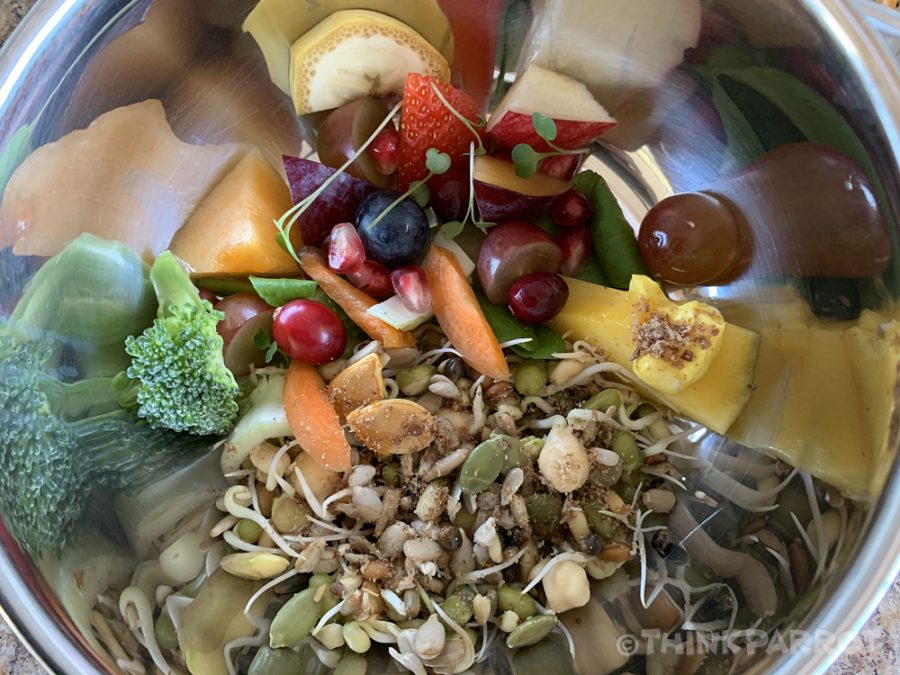
Evening meals include raw and cooked food. A mix of legumes, grains and vegetables including beta carotene rich sweet potatoes or squash. It’s easy to add the different recommended spices, herbs and apple cider vinegar. I might also add a tiny bit of spirulina (don’t add kelp which depending on the brand may be full of arsenic) or other greens for a natural source of vitamins and minerals. This is served with more raw fruit, veggies and sprouts.
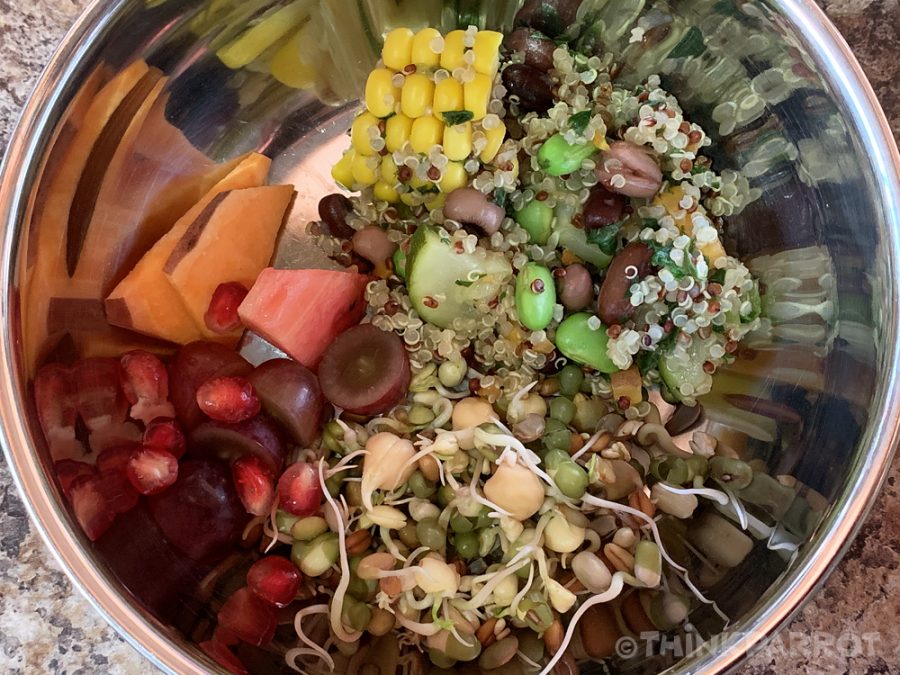
Chico also eats a low sunflower seed mix. I put a rounded tablespoon into the bowl and replace all the dried fruit and nuts with organic. Pieces of walnut, a pistachio or two, a few goji berries and raisins, plus a sprinkling of different pellets. He only eats from this bowl if he doesn’t like the evening meal.
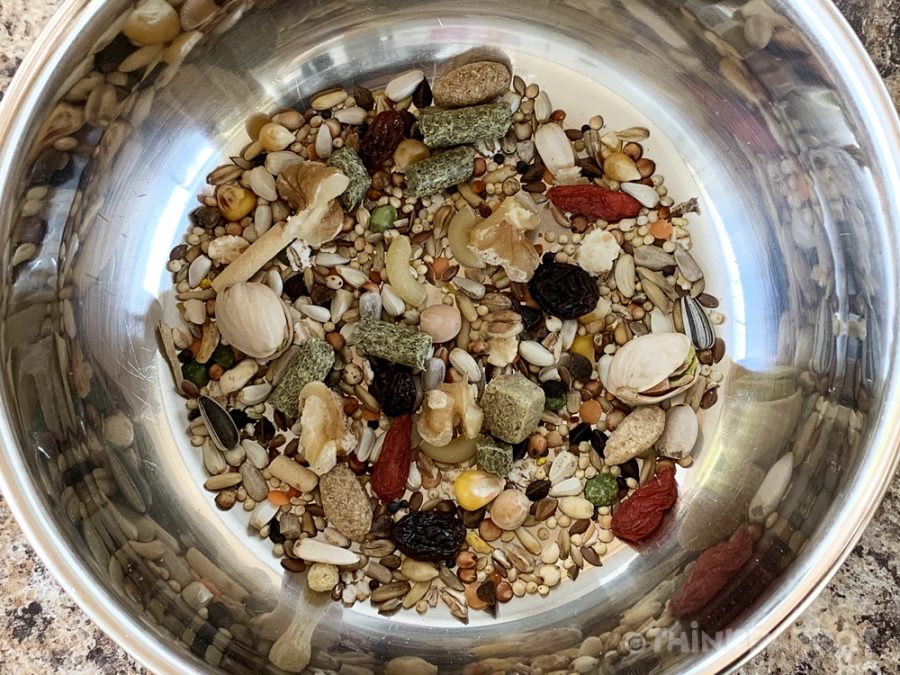
For treats, I give him cashew pieces and almond butter spread on a piece of low salt corn cake. Last thing at night Chico gets some organic tart cherry juice which he drinks from a syringe. Because the flavour is strong, I can mix in a couple of drops of alcohol free Milk Thistle tincture to support his liver and DMG for his immune system. Sometimes I’ll add some Aloe Vera or Noni Juice.
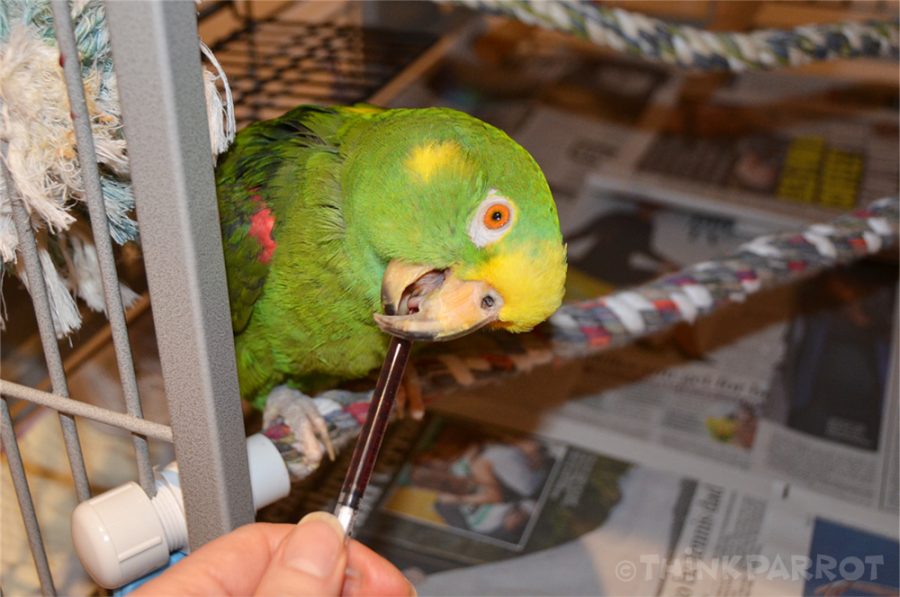
Anti-inflammatory foods are not meant to replace medications prescribed by your avian vet. They can be used alongside.
References:
Prescription for Nutritional Healing by Phyllis A. Balch, CNC
Say No To Arthritis by Patrick Holford published by Piatkus Books
The Green Pharmacy Guide to Healing Foods by James A. Duke, PhD
Treating Arthritis the Drug Free Way by Margaret Hills, SRN

